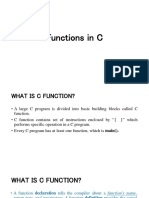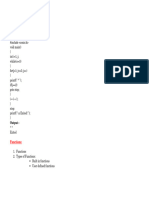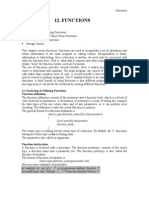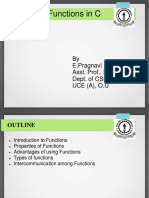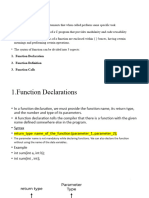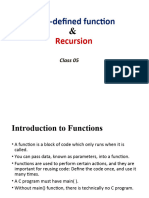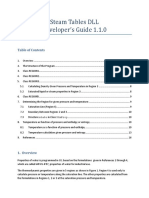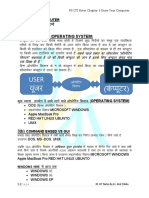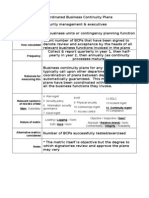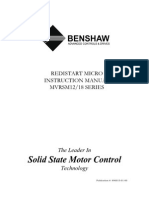0% found this document useful (0 votes)
18 views13 pages3 Functions
The document provides a comprehensive overview of functions in C programming, detailing their types, implementation steps, and advantages. It explains user-defined functions, function arguments, recursion, and storage classes, including automatic, register, static, and external storage classes. Key points include the importance of function prototypes, the difference between actual and formal arguments, and the scope and life of variables based on their storage class.
Uploaded by
akilakarthi2006Copyright
© © All Rights Reserved
We take content rights seriously. If you suspect this is your content, claim it here.
Available Formats
Download as DOC, PDF, TXT or read online on Scribd
0% found this document useful (0 votes)
18 views13 pages3 Functions
The document provides a comprehensive overview of functions in C programming, detailing their types, implementation steps, and advantages. It explains user-defined functions, function arguments, recursion, and storage classes, including automatic, register, static, and external storage classes. Key points include the importance of function prototypes, the difference between actual and formal arguments, and the scope and life of variables based on their storage class.
Uploaded by
akilakarthi2006Copyright
© © All Rights Reserved
We take content rights seriously. If you suspect this is your content, claim it here.
Available Formats
Download as DOC, PDF, TXT or read online on Scribd
/ 13





